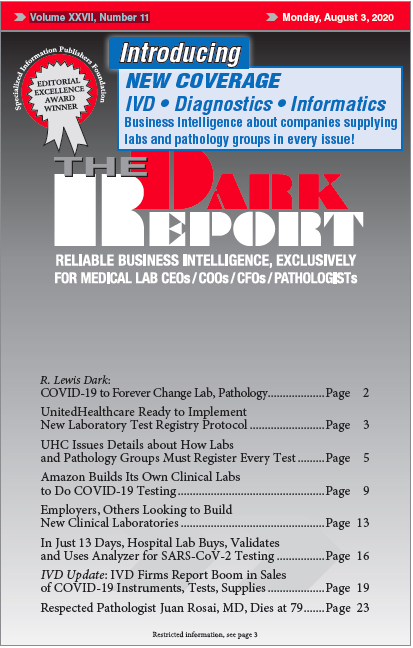CEO SUMMARY: For pathologists and clinical lab directors, Amazon’s nascent lab-testing venture for employees could be a significant concern given that the e-commerce company could disrupt the clinical lab business nationwide. The online retail giant has long had an interest in medical diagnostics and has a reputation for disrupting other industries by acquiring or starting companies in such diverse fields as …
Amazon Building Labs to Do COVID-19 Testing Read More »
To access this post, you must purchase The Dark Report.


